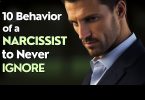Are you in a relationship where you’re being demeaned, devalued, and psychologically damaged? Do you feel trapped by a sense of obligation, guilt, and fear? Are you doing all the giving or almost all of the giving while your partner is still never satisfied and demanding more, more, and more from you? If your relationship defies all logic, then you may have developed a betrayal bond, or what’s also referred to as a trauma bond with your partner.
A trauma bond happens when you become deeply attached to someone who is harmful to you, and you form a strong dependency, committing to them and promising your life to them even when it’s destroying you. Today I’m talking about how to break a trauma bond.
A trauma bond can survive long after a relationship has ended. So, regardless of whether you are still in this relationship or whether it’s ended, you may continue to be filled with self-doubt, confusion, and conflicting thoughts and feelings.
You might find yourself wishing that things could have been different, wishing that you’d done more, wondering why you weren’t enough, still emotionally bound to them, unable to truly move forward with your life. So here are 10 things that can help you break the trauma bond.
Related:
What Does a Trauma Bond with a Narcissist Look Like
7 Steps to Stop Thinking About Your Toxic Narcissist Ex
15 Psychology Tricks to Attract Anyone
10 Reasons Why Toxic People Want to Destroy Super Empaths
How Narcissists Recruit Flying Monkeys to Attack You
1 – Acknowledgment.
First, start by acknowledging and getting clear about what’s going on in your relationship. Open your eyes to reality, listen to what your trusted loved ones are telling you, and to help you recognize the true dynamics of your relationship and the negative impacts it’s having on your well-being, grab a pen and paper, and write out the timeline of your relationship.
How did you meet? What attracted you to this person? How did things evolve? Where did the abuse start? How did the relationship devolve? Write about the good, the bad, and the ugly because it’s a lot harder to deny reality when it’s all there in front of you in black and white.
Remember, a trauma bond is based on manipulation, exploitation, obligation, guilt, emotional addiction, and psychological abuse. So, it may be difficult to even see the truth while you’re still in this relationship, but be as honest as possible with yourself and do this even if you feel like you can’t do anything about it right now. Just take that first step.
2 – Create a Pros and Cons List.
Second, create a pros and cons list to rationally examine the potential benefits and consequences of staying in a relationship with this person. If you’re already out, then examine the pros and cons of remaining psychologically bound to them.
These situations and relationships can be incredibly complex, and it’s not always going to be possible to break all ties, such as in cases when children are involved or there are other issues related to the intricate network that’s dependent on this relationship.
But this exercise is to help you see and weigh all of your options. That said, your choices are not going to likely be simple or without costs and consequences. But doing nothing and staying in an abusive situation also carries huge costs and consequences, and it can rob you of your dignity, your self-worth, your self-respect, and even your life.
3 – Recognize Your Role.
Third, recognize your role in the toxic dynamic. Self-reflection offers an opportunity to help you understand any patterns or vulnerabilities that attracted you to this toxic person and what kept you in this abusive relationship. This is not about blaming or shaming yourself, but rather about identifying your vulnerabilities. And if you’ve been in this type of relationship before, I can guarantee that there’s something in you that needs your attention.
I’ve carried most of my life the sense of failing every woman I interact with. So, as much as it may be easier to blame, the key to healing is recognizing why you are prone to engaging and investing your time, your energy, your money, s*ex, and your resources into scammers or sick people. What made you fall in love with him?
Well, he came at a time in my life when he saw beauty in me that I didn’t see in myself at the time. And he saw a diamond in the rough and he kind of picked me up and blew off all the dust and said, “I’m telling you, I’m going to make you shine, girl.
” If you are trying to save a scorpion from drowning, then at least expect to be stung, because this is the nature of the scorpion. And maybe, just maybe, you’re trying to rescue the scorpion for a reason that has more to do with you than it has to do with them. I always had this sense of being a coward because I watched my father beat up my mother, and I didn’t do anything.
For a 9-year-old, it’s hard to break that programming. Did you mention a time I think you were 13 when you said he hit her for the last time? Yeah, and she left is what you wrote. That you actually thought about suicide. My mind had twisted it into being my fault that my parents weren’t, you know, staying together, and somehow I had failed.
Sometimes we are so desperate to prove who’s right and who’s wrong, trying to paint a person black or white, good or bad. We’re just so busy trying to figure out who and where the scorpions are that we forget that at times, maybe we’ve been the scorpion.
I always knew I would never be physically violent, but there’s a sort of covert emotional violence that can cloak itself in jokes, and stabs. I had to get a hold of that, in that lane that was even hiding itself from me sometimes.
Maybe past trauma caused you to act out. Maybe you’ve been betrayed, and as a result, you’ve hurt others. When you take the time to examine your role in whatever problems you’re having in your life, especially the repetitive, long-standing ones, you may find that the true barriers to connection and love have less to do with the person standing in front of you and more to do with your past and what’s inside of you.
There’s a certain amount of protection that everybody does. We have childhood trauma, and we decide that’s never going to happen to us again, and in order to not experience that, it demands that we be a certain way.
4 – Get Trauma Therapy.
Number four, get trauma therapy to help you process and resolve the cognitive dissonance and any psychological trauma that you’ve experienced as a result of this relationship, as well as whatever trauma you faced before even meeting this abusive person.
I highly recommend reaching out to a trauma therapist in your area, someone who specializes in narcissistic abuse, and preferably someone who offers eye movement desensitization reprocessing, or EMDR for short.
As the saying goes, hurt people hurt people. So, if you don’t resolve your trauma, you may end up putting it on someone else, harming them in the same ways that you were harmed.
5 – Seek Support for Coping and Problem Solving.
Number five, along the same lines, seek assistance to develop positive coping strategies and effective problem-solving skills. A question I often ask my clients is this: if we took 10 random people and gave them all of their daily habits, diet, level of exercise, job, sleep patterns, drug and alcohol consumption, thoughts, what you talk about, who you spend time with, what you watch, what you read, everything you do on a daily basis, they do for an entire month.
When they come back a month later, how do you think they’d be doing, and what do you think they need to change in order to feel better? It’s not likely that your life is going to magically improve. And believe me when I say, no one is coming to save you from your own self-sabotaging patterns.
If you keep doing what you’ve always done, you will likely continue to get the results and outcomes you’ve always gotten. So, take a good, honest look in the mirror and ask yourself what you need to change in whatever area of your life in order to have a different experience.
6 – Extract the Learning.
Number six, an effective strategy to heal from trauma is to extract the learnings from your experience. While toxic relationships are painful and distressing, the extreme suffering can serve as a catalyst for post-traumatic growth. I have personally found that most of my wisdom did not come from the good times.
It came from my toughest, most challenging experiences and relationships, as well as from my worst mistakes. So, if you’re thinking that your toxic relationship was a waste of time and that this negative experience ruined your life, let me just say this: it’s true that you can’t undo the past, and you can’t make what’s wrong right.
But you do get a say in how to interpret and integrate this experience into your memory bank, and this can make a huge difference for you and how your nervous system adapts to this experience. And I’m not talking about toxic positivity here, you know, everything happens for a reason, and only good thoughts and positive vibes.
This is about integrating your trauma so that you can get out of survival mode. When your nervous system is all jammed up with unresolved trauma, most of your time and energy get tied up trying to identify and avoid threats, trying to protect yourself or protect others, and you essentially create a protective cocoon for yourself to stay safe. But there’s no living or loving in that.
There’s no power or freedom in that. And it’s only when you can take the wisdom from an ugly, painful experience and use it to learn, grow, and contribute. That’s when you get your power back. That’s when you restore your nervous system, and it’s also where you gain true wisdom and healing.
And here’s another thing to consider. If you’re a person who is genuinely seeking personal growth, wisdom, or even enlightenment in this lifetime, don’t expect it to come in a neatly packaged box with a bow on top.
So, watch what you ask for and be prepared for the lessons to be painful, and to challenge you to extreme dreams because that’s typically what serves as the catalyst to breaking free from the prison of our minds and of our own conditioning.
7 – Reach out to Supports.
Number seven, reach out to people who can provide empathy and guidance. This can be a trusted friend, family member, or support group, or all of the above. When you do manage to break the trauma bond and break free, you will likely find that at first, the abuser’s voice is still in your head, narrating and controlling you from within.
You may still have one foot stuck in their delusional reality, which is why a strong support network is key to getting yourself back in tune with your own sense of self and your own sense of reality.
8 – Engage in Positive Activities.
Number eight, you may not feel like doing anything fun or fulfilling right now. Breaking a trauma bond is not easy, no matter how you slice it or dice it. But engaging in positive activities, being around positive people, and taking care of yourself in positive ways will make a difference.
Physical exercise or creative outlets like art or music may not solve all of your life’s problems, but they can give you some much-needed relief to help you get through the day, one moment at a time. Taking small steps may not get you there fast, but it will get you there.
And if you stay committed to doing what’s good for you day after day, soon you will find yourself in a completely new space psychologically. Again, this isn’t about toxic positivity. It’s about doing what’s good and healthy for yourself.
9 – Cut the Toxic Person Off.
Number nine, if the relationship is over, cut the toxic person off physically, if at all possible, but most importantly, cut them off psychologically. This means closing the energetic highway between you and them and not allowing them to feed off of you anymore and you not feeding off of them either.
You’ll need to be disciplined about not engaging in any activities that reinforce the trauma bond. Things like creeping their social media, rereading texts, looking at old photos, reminiscing about the positive aspects of your relationship or that person, and trying to protect or defend them in any way. All that stuff simply serves to strengthen the trauma bond.
So, anytime you catch yourself thinking about the person, distract yourself. Reach out to someone, take a cold shower, or do something physical. Imagine a switch in your brain that controls your thoughts about them and flick it off. Use whatever strategy works for you, but do something to stop yourself from jumping on that thought train and allowing it to gain momentum.
As long as your focus is on the abuser, they still own you. Just imagine all of the people tethered to this toxic person through these invisible psychological ties and ask yourself if you want to be one of them. If not, cut the cord. Go ahead, close your eyes, imagine yourself cutting the cord now, and allowing them to float away forever.
10 – Realize There Will be no Closure.
Number 10, realize that there will be no closure. Even once you rationally know and accept the reality of this relationship, part of you may still be hoping that they will genuinely realize the harm they’ve caused you, sincerely apologize to you, and give you the closure that you so desperately want.
However, it is highly unlikely that you will ever get any true closure from a toxic person. This may be because they don’t know why they do what they do or, worse, maybe they just don’t care. Regardless of the reasons, don’t count on your abuser to give you closure or to release you from the trauma bond. They will try to continue to control you and hold your power as long as you will allow it. So, take your power back.
Don’t let them back into your mind or into your life. They may very well try to strategically re-engage you, so beware and don’t get sucked back down the rabbit hole. You already know right here, right now everything you need to know about this person. So, base your decision on those facts.
Breaking a trauma bond takes time and effort. It’s about getting your brain chemistry, your hormones, and your nervous system back on track. If it’s an option for you, I recommend seeing a doctor or naturopath who can test for hormonal imbalances, adrenal fatigue, and other biological factors that can get out of whack as a result of trauma.
And again, trauma therapy is a critical component of your healing. As much as you may want to continue blaming your partner or your ex for treating you the way that they did or for not getting the help that they need, this is exactly what will keep you stuck, trying to get to the bottom of a bottomless pit.







Leave a Comment